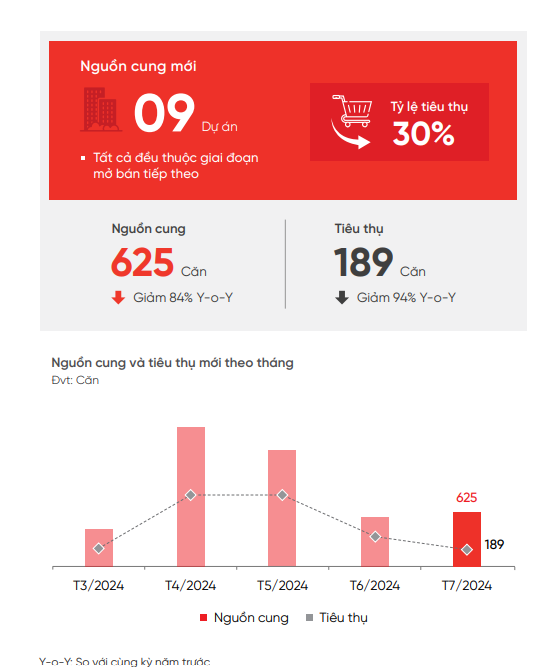Vietnamese Businesses Embrace New Opportunities in the Real Estate Market
Mr. Lucas Ignatius Loh Jen Yuh, CEO of Nam Long Investment Joint Stock Company, shared his insights on the long-term prospects of Vietnam’s real estate market. With an urbanization rate of only 39%, significantly lower than that of China (64%), Malaysia (78%), and Singapore (100%), Vietnam is poised for robust growth in this sector. The simultaneous enforcement of three real estate laws is expected to bring about much-needed transparency, untangling legal complexities and reducing capital risks for businesses.
Nam Long is strategically expanding its market presence in Ho Chi Minh City, surrounding areas, and northern regions like Hai Phong. However, Ho Chi Minh City and its vicinity remain their primary focus.
The company’s leadership revealed their efforts to mobilize capital for business operations and debt restructuring. They emphasized the necessity of this approach to accelerate project development, expedite capital turnover, and seize M&A opportunities in the future.
In addition to their existing land fund of 681 hectares, Nam Long is exploring opportunities in agricultural land, anticipating a potential shift in this segment due to impending legal changes. A notable amendment in the 2024 Land Law allows non-agricultural producers to acquire rice-growing land, heralding a potential golden era for this sector.

With the enforcement of the three real estate laws, what should businesses do to seize the opportunities? (Photo: Minh Duc)
A leader from another real estate company in Hanoi shared a similar sentiment. Their project, which has received investment approval and completed land allocation, is now awaiting clearance for transfer conditions. Additionally, they have been working on compensating and acquiring land for an apartment project since 2021 but have been hindered by land-related issues.
The new Land Law, he believes, will help untangle these knots, enabling them to proceed with their project. ” All the necessary procedures are in place. As soon as the guiding decree is issued, we will follow the new law, and hopefully, all obstacles will be cleared,” he added.
Mr. Nguyen Anh Que, Chairman of the Board of Directors of G6 Group, also encountered legal hurdles with their commercial housing projects. He attributed most of these challenges to the inadequacies of the current land and housing laws.
Mr. Que applauded the government’s decision to implement the 2024 Land Law earlier than planned, acknowledging the challenges posed by outdated provisions in the old law and the cautious attitude of some local officials in handling project dossiers.
He emphasized the importance of this period for businesses to focus on完善 legal documents, procedures, and resource preparation. Additionally, he highlighted the need to strengthen financial capabilities and enhance corporate competencies in anticipation of the enforcement of the new laws.
Mr. Giang Anh Tuan, Director of Tuan Anh Real Estate Floor, shared his perspective on the impact of the amended Law on Real Estate Business. According to the new law, individuals engaged in real estate brokerage must operate within a business and hold a practice certificate. As a result, his company is sending employees for the necessary training. With the market expected to flourish following the enforcement of the three real estate laws, Tuan Anh Real Estate is hiring and training additional staff to prepare for project launches in August.
Accelerating to Seize Opportunities
Mr. Nguyen Quang Huy, CEO of the Finance – Banking Faculty at Nguyen Trai University (NTU), offered his analysis of the implications of the three new laws. He believes they will provide a new legal corridor, untangling most of the market’s knots, which were primarily legal in nature. This will foster a safe, healthy, sustainable, and transparent real estate market. ” It will be a market purification process, increasing competition, and to survive, businesses must operate more professionally,” Mr. Huy stated.

Many projects can be implemented during this period as the real estate market is supported by three new laws. (Illustrative image)
Mr. Huy emphasized the need for businesses to accelerate and focus their resources on resolving long-standing legal issues. These include approving planning, adjusting project legalities, expediting agreements with residents on land clearance, resettlement, and valuation for land use tax purposes. By doing so, businesses can accelerate project implementation, construction, sales, and final delivery.
He also advised businesses to thoroughly understand the new regulations to ensure full compliance and maintain transparent legal procedures for new projects. This approach will help streamline project timelines, reduce costs, and seize market opportunities.
Adjusting the product structure for existing projects and developing new products that meet real demands, cater to a wide range of customer financial capabilities, and offer good liquidity is crucial.
” Quality, speed, reasonable prices, intelligent design, high liquidity, environmental friendliness, and excellent management and operation services are the competitive advantages that will enable businesses to survive and develop sustainably in today’s highly competitive real estate market,” Mr. Huy emphasized.
Sharing a similar perspective, Mr. Vu Cuong Quyet, CEO of Dat Xanh Northern Services and Real Estate JSC (Dat Xanh Northern), highlighted how the simultaneous enforcement and harmonization of the three laws would create opportunities for businesses, especially professional investors with strong financial capabilities. The new laws will raise the bar for market entry, requiring businesses to possess land funds, bidding capabilities, and robust financial health.
To seize these opportunities, businesses must strengthen their financial positions and enhance their project implementation capabilities. The bidding and auction processes will become more transparent, and negotiations may become more challenging. However, for well-prepared businesses, this presents a chance to compete on a level playing field.
Mr. Quyet also pointed out a positive change in the amended Land Law regarding land tax determination. Previously, companies often had to compensate residents at rates higher than the land price framework but could only deduct expenses based on the framework rates. Now, compensation rates will be closer to the current land price framework, allowing businesses to deduct more expenses. This is a crucial advantage that businesses should leverage.
However, Mr. Quyet noted that it might take some time, ranging from six months to a year, for the three real estate laws to fully take effect. During this transition period, businesses should focus on enhancing their capabilities and be prepared to adapt to the specific guiding decrees.
















